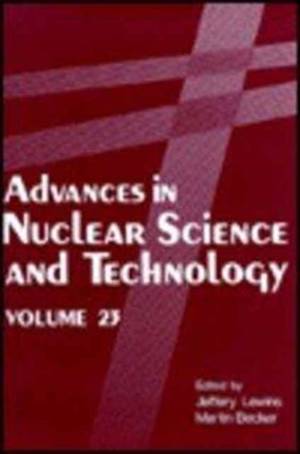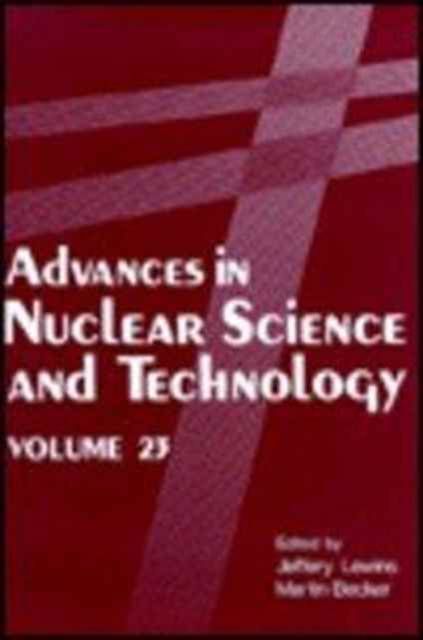
- Afhalen na 1 uur in een winkel met voorraad
- Gratis thuislevering in België vanaf € 30
- Ruim aanbod met 7 miljoen producten
- Afhalen na 1 uur in een winkel met voorraad
- Gratis thuislevering in België vanaf € 30
- Ruim aanbod met 7 miljoen producten
Zoeken
Advances in Nuclear Science and Technology
€ 100,95
+ 201 punten
Omschrijving
The editors have pleasure in presenting this volume of our review series. We have specialised in three areas: perturbation Monte Carlo, non-linear kinetics and the transfer of radioactive fluids in rocks. These contributions are linked, however, in the demands for optimising complex systems that are a feature of the scale of nuclear power production. Kuniharu Kishida's account of Japanese thinking in the application of modern non-linear theory to reactor kinetics and control comes at a time when the community of control scholars is seeking how to apply the new ideas that have led to the prominence of chaos theory to our field. Pr- lems of maintenance in power reactors are as severe as ever and must be solved for credibility to characterise any new program. As much as 30% of unanticipated down-time, for example, is due to the failure of motor op- ated valves. We need a theory to provide for preventive maintenance. This in turn depends heavily on on-line monitoring to anticipate failure as well as expert systems to schedule preventive treatment. Noise theory with its promise of on-line interpretation of information from inchoate breakdown is the key. It is all too likely that the need to deal with major departures makes a non-linear theory of noise essential. We can be grateful that P- fessor Kishida has provided us with such a consistent account.
Specificaties
Betrokkenen
- Uitgeverij:
Inhoud
- Aantal bladzijden:
- 194
- Taal:
- Engels
- Reeks:
- Reeksnummer:
- nr. 23
Eigenschappen
- Productcode (EAN):
- 9780306451843
- Verschijningsdatum:
- 30/04/1996
- Uitvoering:
- Hardcover
- Formaat:
- Genaaid
- Gewicht:
- 469 g

Alleen bij Standaard Boekhandel
+ 201 punten op je klantenkaart van Standaard Boekhandel
Beoordelingen
We publiceren alleen reviews die voldoen aan de voorwaarden voor reviews. Bekijk onze voorwaarden voor reviews.










